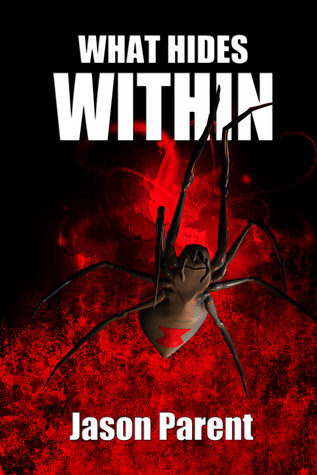The writing process interview questions below are being passed around from writer to writer in a sort of chain-letter fashion (but without the threats of bad luck). A gentleman writer by the name of Martyn V. Halm (The Amsterdam Assassin Series) passed these questions on to me to answer on my blog. (You can read his answers to these same questions here.) And I've tagged author Jason Parent (What Hides Within) to continue this cycle of abuse.
The Questions & Answers:
What am I working on?
I'm working on getting my next horror novella, The Hanover Block, out the door. I'm also revising an unruly SF epic, finishing a short story, starting another short piece, and I'm in the woolgathering phase for what I think of as a big, gory fantasy/horror/adventure story.
How does my work differ from others of its genre?
Well, I write in three genres, science-fiction, fantasy, and horror. The only real, appreciable, difference between the work I'm doing and the work done by others is that all the genre tropes are all mashed up and filtered through my brain (not theirs) before they make it into the word processor. It's up to readers to decide whether or not my perspective is unique and interesting enough for them to keep reading my work.
(Yes, I fully realize that the above is a non-answer.)
Why do I write what I do?
My wife wants to know the answer to this, too. She asks me why I mainly write stories about revolting things, creepy people, and disturbing encounters. The best answer I've come up with is this: I think it's funny. That's not a very satisfying answer, I know.
And it also appears that I'm not a good judge of exactly how, uh, questionable my own work can be. I handed my wife a short story recently that I presented as possibly being well-suited for a YA market. Her response was basically, "There is nothing in this story that would be appropriate for a young adult audience. What is wrong with you?"
I don't know. I just don't know.
How does my writing process work?
An idea, a concept, comes to me (from where, I do not know), and I have to build a story around it. The concept gathers story pieces in my head over a long period of time, collecting details, characters, scenes, and set pieces. When the story has a clear end in sight, I finally get to the point where I start writing stuff down.
I'll make some notes, so as not to forget certain things, but I'm not an outliner. I generally have the sense of the story when I start writing. How it starts and ends is usually pretty firm. But how I get from the beginning to the end is wide open usually, with maybe just a few key scenes, pivot points, worked out.
For longer pieces, I'll outline a few chapters ahead and take notes on how things in earlier chapters should be retconned to fit in with the shiny new things I've introduced later in the story. Overall, it's a pretty messy affair.
Once it's all written out, I let it sit for quite some time, so that I can come back to it for editing with fresh eyes. Then I hack it up relentlessly. I rarely add things to a story after it's written, new scenes and whatnot. I'm one of those writers who is always looking for something to take out, ways to make things leaner, quicker, and more precise. And I'm sure one day I'll succeed in this regard.
All right, interview over.
As I mentioned above, the writer who will be answering these dreadful questions on his blog next is Jason Parent. Jason is the author of the darkly humorous horror novel What Hides Within. His short fiction has appeared in the charity anthology Of Words and Water and in Sanitarium Magazine. You can learn more about him at his home on the web.
Dutch author Martyn V. Halm is the creator of the singular Katla Sieltjes, the deadly female assassin of his Amsterdam Assassin Series of novels and short stories. If you're interested in meticulously researched and fast-paced thrillers, then I recommend you grab the Katla KillFile stories (Locked Room, Microchip Murder) to get a taste of Halm's work. They're available as free downloads on Amazon.


Hi Gregor, it's wonderful to read you writing process answers. I laughed out loud at the 'What's wrong with you?'. I get the same looks sometimes when my wife learns what Katla has been up to. And one of my beta-readers is glad that I live across the ocean... I guess the details of Katla's work can be horrifying.
ReplyDeleteI, like Martyn, found myself laughing at your wife's assessment.
ReplyDeleteI think it's fascinating that you would rather work it all out in your head before writing it all down. Apparently, your process of removing but not adding seems to work for you, since Six Dead Spots was fast-paced and concise.
Great answers! (Even your non-answer wasn't so bad.)
Thanks, Lynda. I think my wife wishes I'd cut even more, like all of the elements that make my stories horror stories.
ReplyDelete